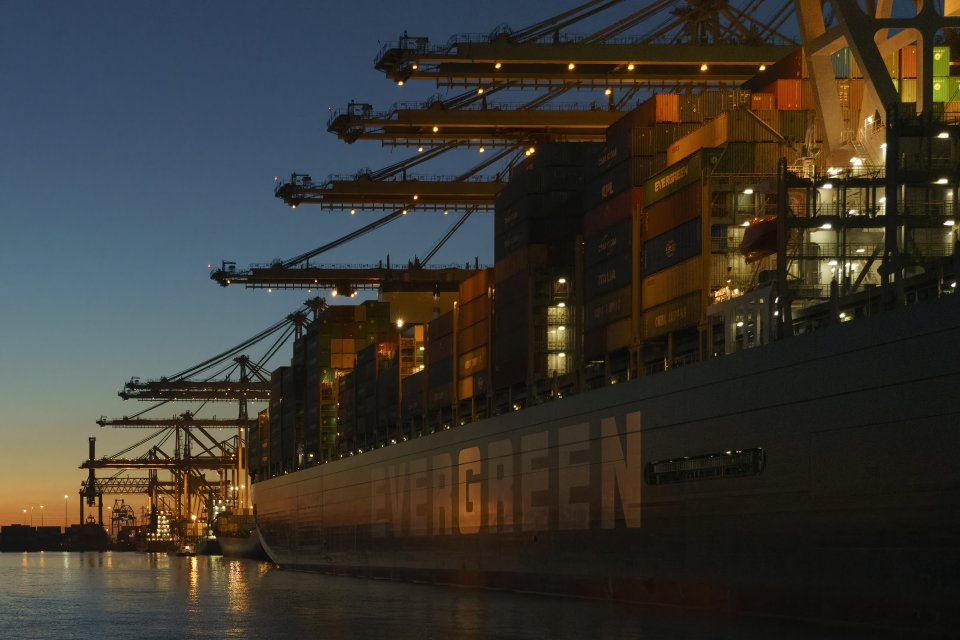
According to Babylonian legend, the Tower of Babel was built by individuals cooperating with one another in harmony to reach God. So much so that the Mesopotamian (Babylonian) region only speaks one language. Therefore, cooperation and communication are at the highest level. According to legend, curses cause people's languages to shift and communication is disrupted. Because of this, people become unable to work together and tower construction stops.
While the downfall of the Tower of Babel inspired many stories told in history, its main idea was; It is the punishment of people and the interruption of harmonious work by mixing their tongues. When some historians apply this myth to the present day, it is also considered as the collapse of globalization. They are, in my opinion, making a minor error in their observation. In fact, globalization is not collapsing, it is changing its shell.
Let's talk about our story...
Container shipping became known as the foundation of globalization in the 1980s. It was quite reasonable. It was shifted from supply-oriented to demand-oriented as a result of the container shipment. The volume of cargo to be transported and the frequency of trips increase with containerization, but package sizes reduced. Naturally, the customer's demand – for the fastest deployment speed and the lowest cost distribution reliability – was revised.
As container shipment increased we discovered over the years that container shipping is actually a far more deeper equation than the travel of any particular commodity. To illustrate this briefly, I'll use an example from an observation made by economist David Friedman. There are two methods for producing automobiles for the United States. US could manufacture the cars in Detroit or develop them in Iowa. That is, developing cars in Iowa requires special technology that turns wheat into Toyota. Wheat from Iowa is loaded onto vessels and sent to the Pacific Ocean. Within a short period of time, the vessels return with Toyotas on board.
We can call the technology used in the Pacific to turn wheat into Toyota "Japanese Technology". As a result, automotive workers in Detroit and farmers in Iowa are in direct competition. If imports of Japanese cars were to be restricted in the future, it would benefit automotive workers but this step would be the detriment of the farmers. In short, while making container trade more dynamic, it has increased competition even between cities beyond countries.
While trade was proceeding in this manner, it was revealed that the demand-oriented approach was capable of causing damage due to the Pandemic. And quite dramatically. Indeed, one of the teachings of the pandemic is that there is is a lack of elasticity in economies. We discovered that the "Just-in-time inventory system," or stock philosophy based on just-in-time supply of materials, works well as long as there are no systematic problems.
Let's make a brief reminder; This philosophy aims to prevent stockpiling by reducing the transport distances of materials. In other words, if product B is needed to produce product A and product C is needed to produce B product, a small supply constriction can have big consequences. A big problem with a product should be a small problem for any economy. But it wasn't the case! The pandemic has left a profound wound in the JIT philosophy. The philosophy, which was supposed to reduce prices by creating competition, suddenly caused starvation and price increases. Inflation increased when prices began to rise in large numbers.
Nowadays we see that the container shipping is not the building block of globalization.
Container shipping is going on at full speed, the need for it has been tested during the pandemic. But we have slightly exaggerated the concept of "the building block of globalization." Why? Although container transportation is still essential to global trade, but the philosophy it created has been damaged. On the other hand, products that we cannot handle; service, experience, talent, etc. we see that elements come to the forefront. Nowadays, some of the ties between countries, between companies, are being established on the basis of these intangible values, and they are rapidly shifting. Between 2010 and 2019, the share of foreign trade in services, intellectual property, and education increased steadily. It can even be said that it has doubled compared to trade in goods.
When we look at the big picture, we can see that despite the Russian-Ukrainian conflict, global ties appear to be proceed. However, rather than commerce in products, as was the case in the late 1900s, aspects such as knowledge and skills began to come to the fore. Innovations follow crises. The absence in the 1970s gave birth to the container process, which allowed more products to travel faster. Some said that the end of globalization would begin after the pandemic, just as it was the beginning of the collapse of Babylon.
It appears that globalization will continue where it left off, container transportation will continue on its way, but there are also new entrants. We see that the intense trade in goods in the first years of globalization has shown an alteration by breaking out of its shell.
The information, comments and advice contained herein are not within the scope of investment consultancy.

Comments ( 0 )